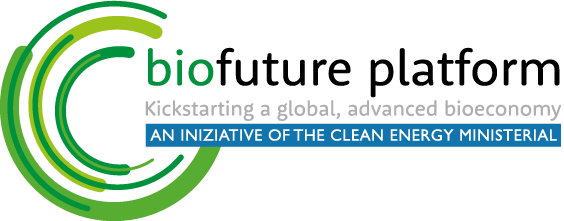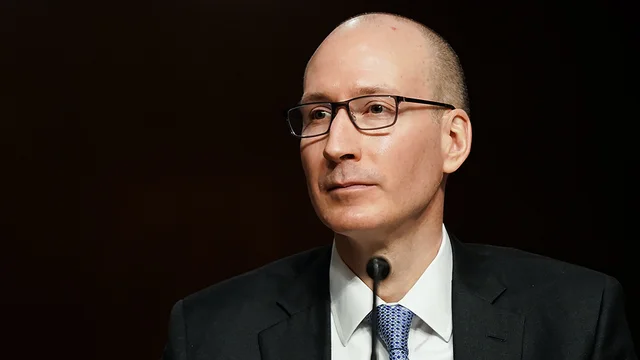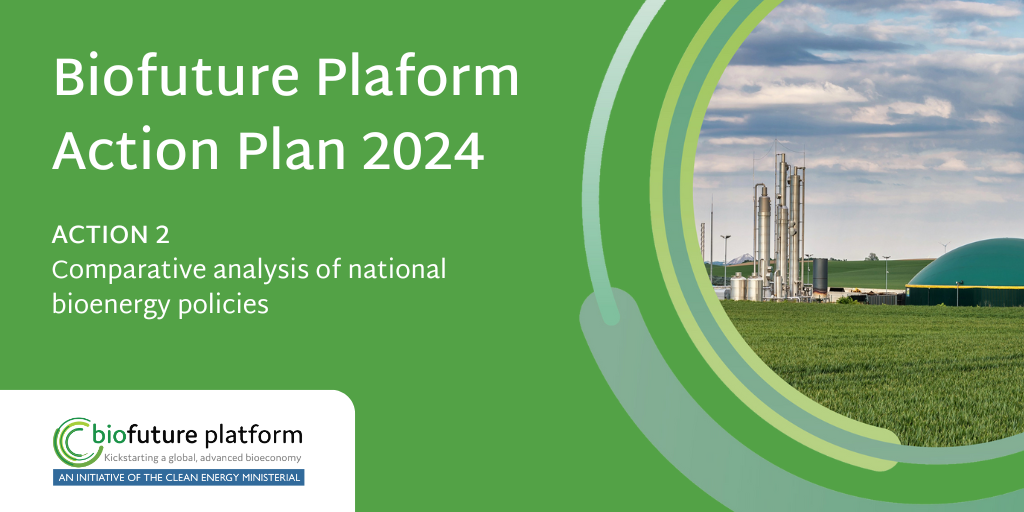US Deputy Energy Secretary David Turk: “I thank Brazil for launching, leading and building the Biofuture Platform, which since its launch at the COP22 in Marrakesh, in 2016, has become a key instrument for spearheading multilateral collaboration and policy discussion. As the new Chair of the Biofuture Platform Initiative, the US will focus on developing sustainable biomass supply chains, exploring and forging consensus on environmental understanding of biomass as a key element of the clean technology revolution, stimulating private sector engagement, and critical policy convergence to enable success.”
May 26, 2021: The United States is in line to become the next chair of the Biofuture Platform, a multi-stakeholder initiative facilitated by the International Energy Agency (IEA) created to take action on climate change by promoting international coordination on the sustainable low-carbon bioeconomy. The US will take over from incumbent chair, Brazil, in June 2021.
Under Brazil’s chairmanship, the Biofuture Platform, which was originally initiated by the government of Brazil in 2016, has grown to include twenty member countries with a shared ambition to scale up sustainable low carbon bioenergy in the transition to clean energy. In 2020, it joined forces with the Clean Energy Ministerial (CEM), an international forum dedicated to the several aspects of the clean energy transition, relaunching as the CEM Biofuture Platform Initiative. Last year the Biofuture Platform launched its Five Principles for Post-COVID Bioeconomy Recovery and Acceleration promoting international cooperation in decarbonising the energy sector.
Thanking the current leadership of the Biofuture Platform for “launching, leading and conducting” what he qualified as a “key instrument for spearheading multilateral collaboration and policy discussion”, David Turk, Deputy Secretary of the U.S. Department of Energy, said of the US priorities for their term as Chair:“As the new Chair of the Biofuture Platform Initiative, the US will focus on continually increasing the number and breadth of country members to make this truly a global coalition, focusing on the key challenge areas of developing sustainable biomass supply chains, exploring and forging consensus on environmental understanding of biomass as a key element of the clean technology revolution, stimulating private sector engagement, and critical policy convergence to enable success.”
The multilateral Summit held between the 24th and 26th May also marked the launch of the Biofuture Platform’s landmark Policy Blueprint, a critical appraisal of the global bioeconomy, highlighting the need to increase rates of bioenergy to meet global greenhouse gas emissions targets in the coming decades.
The Policy Blueprint, which was unveiled on day two of the Summit, aims to accelerate the growth of the sustainable bioeconomy by providing countries with the methodologies, tools and practical guidance to evaluate and improve the impacts and effectiveness of their bioenergy and bioeconomy policies. Critical examples of successful deployment of bioenergy policies featured in the Blueprint include:
- Brazil’s RenovaBio initiative which has accelerated the overall use and production of biofuels in an effort to reduce carbon emissions from transport by 10% over a ten-year period.
- The United States’ Renewable Fuel Standard which established a blending quota for biofuels and provides financial support through the creation of tradeable certificates helping to drive adoption of bioenergy.
- The Netherlands adopting a draft target for biofuels and other renewable fuels of 27.1% for 2030, significantly higher than the EU target of 14% renewables across transportation.
Commenting on the aspirations of the Policy Blueprint, Brazil’s Secretary for Foreign Trade and Economic Affairs, Sarquis Sarquis, said: “It will provide structure and clarity to the lessons learned over the years, helping to build the foundations of a sustainable future where the bioeconomy thrives and offers us most of our needs in clean fuels, materials, and chemicals, while protecting the environment and creating economic value, good quality jobs and opportunities for our people.”
The publication of the Biofuture Platform Policy Blueprint follows last week’s launch of the IEA’s Net Zero by 2050: a Roadmap for the Global Energy Sectorreport which recognised the critical role that bioenergy will play as we transition to a net zero energy system, while ensuring stable and affordable energy supplies, providing universal energy access, and enabling robust economic growth. The newly released report points to a very narrow window of opportunity to limit climate change to acceptable levels.
According to the IEA, among a range of changes in other sectors, the overall supply of modern, sustainable bioenergy should almost double in the next 10 years, going from almost 40 Exajoules today to slightly more than 70 Exajoules by 2030. Biofuels for transportation should more than triple from 1.6 to 6 million barrels of oil equivalent per day by 2030, with more than 40% of those coming from advanced biofuels.
The IEA’s report acknowledged the critical role that sustainable bioenergy delivers, helping to reduce emissions across a wide range of areas, including low-emissions fuels for planes, ships and other forms of transport, and the replacement of natural gas with biomethane to provide heating and electricity. The IEA has concluded that bioenergy is ‘essential in bringing clean cooking solutions to the 2.6 billion people who currently lack them.’
Addressing the Biofuture Summit II Virtual Conference with a call to action to increase the uptake of bioenergy across the globe, Dr Paolo Frankl, Head of Renewables at the IEA commented: “Reaching net‐zero emissions globally by 2050 is a critical and formidable goal, requiring an unprecedented transformation of how energy is produced, transported and used. In the bioenergy space, a tremendous amount of innovation and investments need to be unlocked. Urgent, strong and credible policy actions is required from governments, underpinned by much greater international cooperation, as is the needed to attract investment at scale and foster the required innovation.”
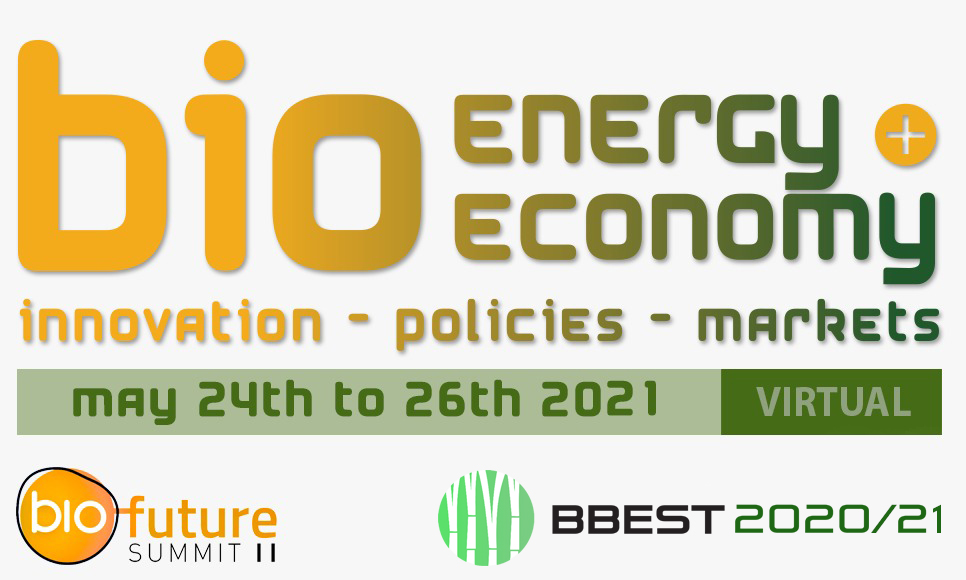
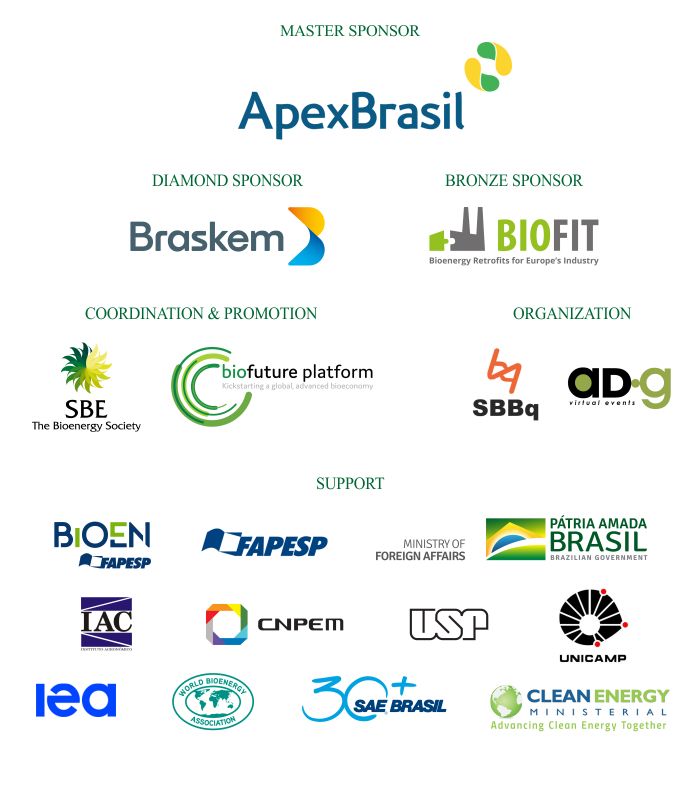
About the Biofuture Summit II / BBEST2021 Virtual Conference (24-26 May 2021)
The 20-country Biofuture Platform multilateral initiative has joined forces with the Brazilian Bioenergy Science and Technology Conference (BBEST) to bring together the world´s very best in policies, innovation, science and market outlook in the bioenergy and bioeconomy sectors. The conference is organized by the Brazilian Ministry of Foreign Affairs as Biofuture Platform chair and host, the Bioenergy Research Program from the FAPESP State of São Paulo Science Research Foundation (BIOEN), with support from the APEX-Brazil trade promotion agency and the International Energy Agency (IEA), among several other partners.
Due to the global COVID-19 pandemic, the original joint Biofuture Summit II / BBEST conference was postponed and broken down into two different virtual segments. After a warm-up policy forum and poster presentation and exhibit held from 30 November to 02 December 2020, the main Conference is taking place now, from 24 to 26 May 2021, with 637 registered delegates from 38 countries. Proceedings are restricted to press, Biofuture Platform country representatives, partners from international organizations and academia, and to paying attendees. However, the opening session and the four major keynotes have been made publicly available through YouTube.
The week’s events include high-level opening and closing ceremonies, a keynotes session on the low carbon bioeconomy’s place in the fight against climate change and energy transition, and several live webinars and pre-recorded roundtables and panels devoted to many aspects of accelerating the sustainable low carbon bioeconomy, for a total of 40 sessions, including 212 speakers. The topics covered include policies, finance, technology and innovation support, transportation, bioproducts, biorefining, sustainability governance, aviation biofuels, advanced biofuels and cellulosic ethanol, and many others, accessible through the Whova virtual conference platform. For more information visit: bbest-biofuture.org.
About the Biofuture Platform
The Biofuture Platform Initiative is a government-led, multi-stakeholder initiative designed to take action on climate change and support the Sustainable Development Goals by promoting international coordination on the sustainable low-carbon bioeconomy. It was launched in Marrakesh at the COP 22 climate talks in November 2016. Since February, 1, 2019, the International Energy Agency (IEA) has been the Facilitator (Secretariat) of the initiative. Since 2020, it is an integral part of the Clean Energy Ministerial forum (CEM), as the Biofuture Platform CEM Initiative. Brazil has been chairing the Platform since launch, and will pass on that role to the US starting on June 1st, 2021. The Biofuture Platform has twenty member countries: Argentina, Brazil, Canada, China, Denmark, Egypt, Finland, France, India, Indonesia, Italy, Morocco, Mozambique, the Netherlands, Paraguay, Portugal, the Philippines, United Kingdom, the United States of America and Uruguay. As a multi-stakeholder initiative, a number of international organizations, academia, and private sector associations are also involved and engaged as official partners. For more information visit: www.biofutureplatform.org.
About the IEA
The International Energy Agency (IEA) is at the heart of global dialogue on energy, providing authoritative analysis, data, policy recommendations, and real-world solutions to help countries provide secure and sustainable energy for all. Taking an all-fuels, all-technologies approach, the IEA advocates policies that enhance the reliability, affordability and sustainability of energy. The IEA is supporting clean energy transitions all over the world in order to help achieve global sustainability goals. For more information visit: www.iea.org.
Media enquiries
Hume Brophy for the Biofuture Platform: Biofutureplatform@humebrophy.com
Laura Morrissey, Account Director: laura.morrissey@humebrophy.com, +44 (0)7772 124 299
Fred Dowd, Account Manager: fred.dowd@humebrophy.com, +44 (0) 7387 261 245
Virtual Conference press office in Brazil: E-Vocar Comunicação, Ana Americano, ana.americano@e-vocar.com, +55 11 96852 9623
